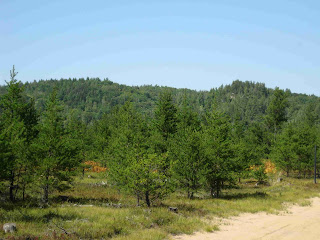In residential Real Estate sales, the topic of surveys comes up on occasion. Most properties have reasonably well defined property boundaries and the lot usually has been surveyed at some point. As we move into the markets dealing with larger acreage parcels, the percentage of properties with a recorded survey becomes much less. The need for a parcel to be surveyed is debatable, but it is never a bad thing to have more and better information. This issue comes down to cost and the risk/reward relationship of having a property surveyed or not.
Most residential lots have been created using a mechanism of land division that required the property to be surveyed. In contrast, most larger acreage vacant parcels are "parent" parcels or were created outside of the regulations requiring a survey. To save money, these properties were seldom and still are seldom surveyed prior to a sale. What this has led to is a chain of misinformation on property boundaries.
Many of our sales involve a property that is being surveyed for the first time. It is common to see a discrepancy between what the owner assumes the property lines are and what the actual survey shows. This can reveal all kinds of issues with encroachments and in many cases will lead to property disputes.
So it probably is sounding like we recommend a survey on all properties prior to a sale? Usually this is the case, but not always. Surveys can be costly. Many Sellers will not want to or be able to pay for this service. Many Buyers will elect to go without a survey in order to keep their costs down as well. Sometimes this is penny wise and pound foolish, but there are scenarios in which a survey is not necessary. How do you know if the property your buying or selling should be surveyed? Here are some guidelines and questions to ask yourself. If you don't know the answer, find out before proceeding with the transaction.
- Has the property been surveyed before? Sounds dumb, but it's the first question to ask.
- Does the parcel have a "square" or "simple" legal description? A common 40 acre parcel is the 1/4 of a 1/4 section. With this type of description it is much easier to determine the borders without a survey.
- Will the sale require a survey to create a legal description? If you do not have a proper legal description for a parcel it may be required to draft the deed.
- Will there be easements retained or granted that need to be described?
- Is the Buyer planning to develop the property?
- Is the Seller retaining lands that need to be defined?
There are many more questions and issues to be discussed when dealing with surveys, but these are the most common. In next week's entry we'll discuss an alternative to a registered survey for parcels that may not require a full survey. For more information, contact one of the Real Estate professionals at Northern Michigan Land Brokers, or visit us @NorthernMichiganLandBrokers.com



